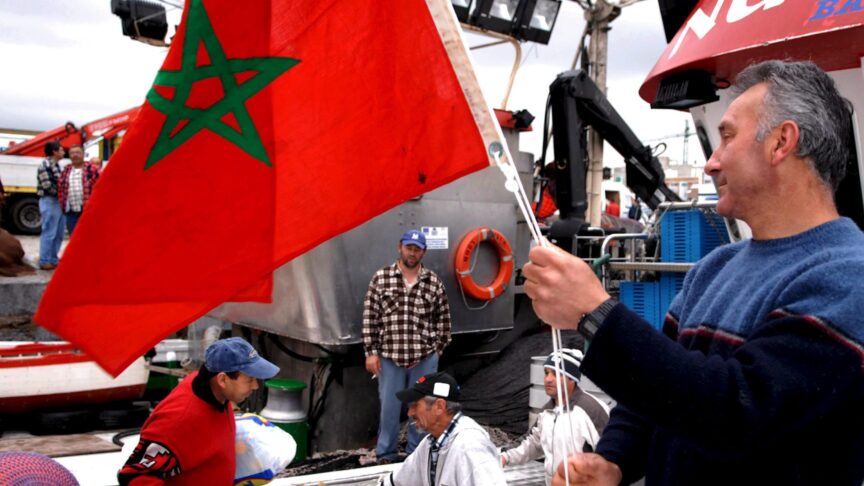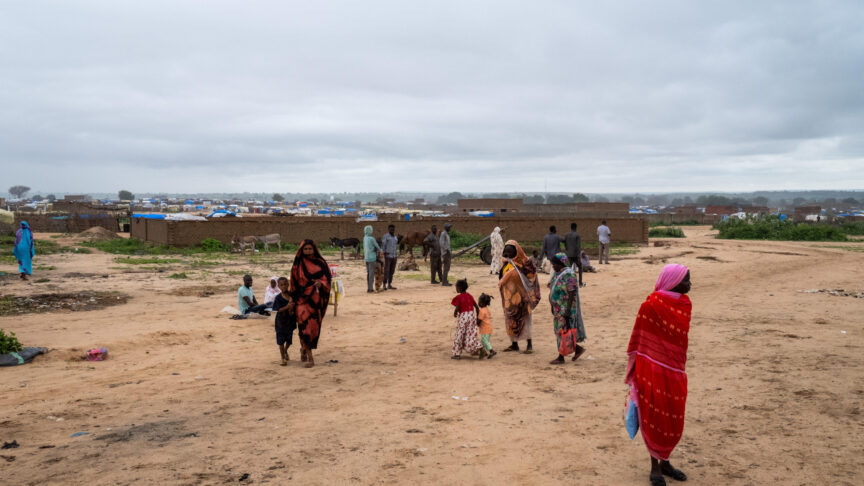Sisi’s illusion of stability
The EU should end its acquiescence to Sisi’s policies.
As world leaders gathered in New York for the September 2019 session of the UN General Assembly, US President Donald Trump congratulated his “friend” Egyptian President Abdel Fattah el-Sisi on his legacy. “He’s done some things that are absolutely amazing in a short period of time,” Trump said. “When he took over not so long ago, [Egypt] was in turmoil. And it’s not in turmoil now.”
Many Egyptians would disagree. Egypt may not be experiencing widespread turmoil yet, but thousands of people have, over the past two weeks, protested in the streets of several cities to express discontent with Sisi’s rule for the first time in years. While Sisi tried to downplay the protests before leaving for the UN General Assembly, drastic measures at home show that he is taking them seriously. The government is intensifying its security crackdown, through internet shutdowns and the mass arrest of nearly 2,000 people, to curb the demonstrations. While these measures may have prevented many Egyptians from joining the protests so far, the crackdown is emblematic of the imposed stability that Sisi has presided over in recent years. The re-emergence of public protest should remind the European Union that his policies do not provide a basis for long-term stability. It is high time that Europe pressed for a course correction and called out repression.
Economic frustration and a loss of dignity
The starting point for the recent protests came from a somewhat unlikely source: in video messages recorded in exile in Spain, businessman Mohamed Ali has accused Sisi of wasting billions on luxury vanity projects and facilitating systemic corruption. The videos have been a hit on social media, receiving millions of views. He claims credibility as a former beneficiary of the corrupt system who now acts as a whistleblower and releases “Mohamed Ali’s secrets” – as his YouTube channel is called. He is using the platform to call for peaceful demonstrations and for Egyptians to reclaim their freedom.
Speculation that some of Sisi’s internal rivals are behind them aside, Ali’s video messages play into broader trends. On the economic front, allegations of corruption are certainly not new in a system dominated by the military elite. While Sisi’s reforms have produced some economic growth, they have not yet improved the living conditions of the Egyptian population. Most Egyptians are growing poorer by the day, with one-third of them already living below the poverty line. Even more importantly, this economic decline has been accompanied by a debilitating political and security crackdown – worse than anything Egyptian society experienced under the leadership of Hosni Mubarak. It was these key ingredients that drove Egyptians to demand the fall of Mubarak’s regime in Tahrir Square in 2011.
Under Sisi, the authorities have suppressed opposition voices – most notably, those of the Muslim Brotherhood. In August 2013, more than 900 protesters were killed during the infamous Rabaa massacre. The incident was never officially investigated, effectively granting immunity to the perpetrators and signalling that the government had zero tolerance for the Brotherhood – which it banned and declared a terrorist organisation in 2013. The authorities detained the Brotherhood’s leaders and tens of thousands of its real or perceived supporters in the name of counter-terrorism. Between 2013 and 2019, Egyptian courts handed down at least 2,400 death sentences. The funeral of former president Mohammed Morsi, who recently died in detention under unclear circumstances, was a high-security operation.
In Sisi’s Egypt, conspiratorial allegations of support for the Brotherhood – and for foreign interference – have become a powerful instrument for discrediting and persecuting political opponents. Unsurprisingly, the authorities have levelled both accusations at participants in the current protests. While Egypt’s secular elite might applaud the witch-hunt, it is damaging to Egypt’s social fabric, as political Islam and many of its informal social institutions remain deeply important to Egyptian society.
While members of the police and the military operate with near-impunity, citizens who express discontent face grave consequences. Under the banner of counter-terrorism, the government has largely dismantled the right to assembly, free expression, and protest – and has suppressed independent journalism. Cairo’s 2018 NGO law, marginally modified after international criticism, has banned most organisations that act independently and whose activities have not been rubber-stamped by the state. The authorities often arbitrarily detain and torture journalists, artists, and activists – some of whom become victims of forced disappearances or even extrajudicial executions.
The need for a European reassessment
The Trump administration has given Sisi’s autocratic project the green light in return for its military and economic allegiance. Europe has occasionally criticised Sisi but, ultimately, delivered a similar message: so long as the Egyptian state guarantees stability, especially in the wake of the migration crisis, European leaders will ignore its abuses. European leaders fear that they have little influence on Sisi, given his relationship with the US and countries in the Gulf. Additionally, Egypt remains a key player in regional conflicts such as that in Libya, as well as in the Middle East Peace Process. Egypt is also an important economic partner and market for Europe, as well as a major recipient of arms from Germany and France.
But, at this critical juncture, the EU should end its acquiescence to Sisi’s policies. For too long, the bloc has stood idly by while his government engages in an all-encompassing attack on Egyptians’ basic rights. The EU needs to reassess its approach – and to send a clear message to Sisi that any further escalation in state repression will lead the union to cut back its engagement with Egypt. This is especially relevant considering the substantial financial assistance Europe has provided (comprising more than $11 billion in grants, loans, and debt swaps) in addition to the November 2016 International Monetary Fund loan of $12 billion to Egypt.
Mediterranean European countries have a particular interest in using every available source of leverage over Sisi, who they have traditionally supported. In comparison to those in northern and eastern Europe, states on the EU’s southern border would face a greater challenge from any rise in refugees fleeing an escalating crisis in Egypt.
Meanwhile, Egypt needs to shift its approach to socio-economic development away from a singular focus on GDP growth and towards the creation of better opportunities for the Egyptian population. The government must not brush allegations of corruption aside but credibly investigate them. As they work to contain various crises across the Middle East and north Africa, European leaders should recognise that Sisi’s autocratic rule does not provide the stability they desire. He has already changed the constitution to allow for his rule to extend until 2030. After years of political turmoil and uncertainty, Egyptians are tired of change and long for stability. Some might still see him as the best option to further stabilise the domestic situation in Egypt. But they could soon lose patience with Sisi. Widespread suppressed discontent and even anger at the regime are hardly a foundation for sustainable development.
In his recent speech at the UN General Assembly, German Foreign Minister Heiko Maas rightly claimed that there was a need for more sustainable policymaking aimed at crisis prevention instead of crisis response. Now is the time for European countries to engage in concerted action that helps Egypt break through its economic and political impasse. If they do not, the most populous country in the Middle East and north Africa might join the long list of those caught up in intractable conflict in the region.
The European Council on Foreign Relations does not take collective positions. ECFR publications only represent the views of their individual authors.


